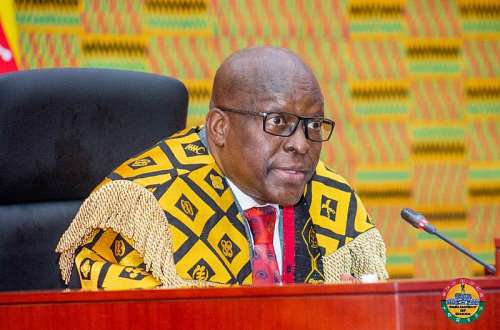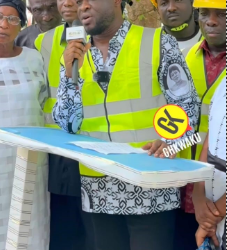Ghana’s Parliament has been thrown into financial paralysis following the indefinite postponement of its scheduled re-opening, a situation sources within the Parliamentary Service attribute to the failure of the Mahama administration to release funds owed to the Legislature for the second and third quarters of the year.
Parliament was originally expected to reconvene from recess on October 14, 2025. However, in a sudden turn of events, Speaker Alban Bagbin issued a notice this week announcing an indefinite postponement of the House’s reopening.
Multiple sources close to the Office of the Speaker and the Parliamentary Service have confirmed that the decision was prompted by the non-payment of Parliament’s quarterly budgetary allocations, a development that has made it nearly impossible for the House to function.
The sources disclosed that payments for goods and services and compensation for staff have not been made, leaving Parliament unable to meet its operational expenses.
This financial strain appears to be part of a broader controversy surrounding the non-payment of salary arrears and end-of-service benefits, popularly referred to as ex gratia, to Members of Parliament (MPs) and other Article 71 officeholders.
Ahead of Parliament’s last sitting in July 2025, there were strong rumours that MPs on both sides of the House were planning to boycott the presentation of the mid-year budget, citing frustrations over unpaid arrears. To quell the tension and ensure the budget was read, the Finance Minister, Dr. Cassiel Ato Forson, reportedly authorised payments of the ex gratia only to returning MPs.
According to credible sources, the first instalment was made in July, followed by a second instalment in August. However, non-returning MPs, the Speaker, and his deputies have yet to receive full payment.
The roots of the standoff trace back to January 6, 2025, when, following extensive negotiations between former President Nana Addo Dankwa Akufo-Addo and Speaker Bagbin, the emoluments for Parliament were determined by the President, while those for the Executive, the Council of State, and the Judiciary were determined by Parliament itself during its 399th Sitting.
Under both law and established practice, payment of these approved emoluments should have been completed by the end of the first quarter of the year. Yet, as of October, these payments remain outstanding.
Journalists and civil society actors have intensified calls for transparency in the matter. Several Right to Information (RTI) applications have been filed with Parliament, the Ministry of Finance, and the Office of the President, seeking details on when the outstanding payments will be made. So far, these requests have gone unanswered.
Without clarity or funds, Parliament’s resumption remains on hold indefinitely, raising constitutional and governance concerns about the ability of the Legislature, the arm of government charged with oversight, to effectively perform its duties.
The situation could snowball into an institutional crisis if left unresolved, especially when the finance minister is expected back in about a month to read the budget for 2026. “When Parliament cannot sit because the Executive has refused to release funds, it strikes at the heart of separation of powers,” one senior Parliamentary source explained.
Until a resolution is reached between the Speaker and the Finance Ministry, the nation’s lawmakers, and by extension, Ghana’s legislative process, remain effectively grounded.






